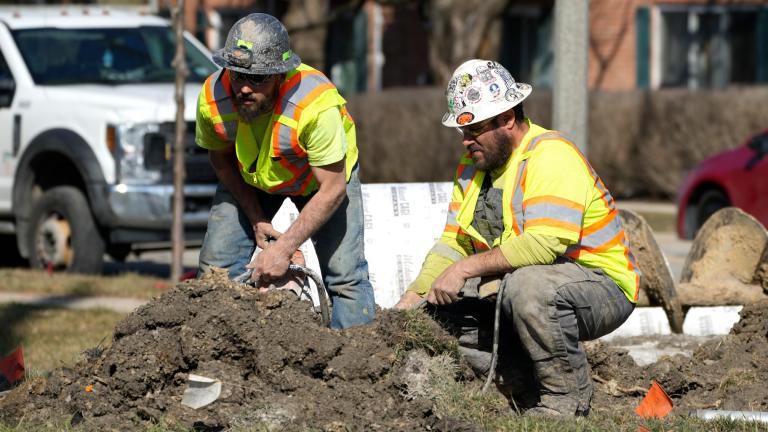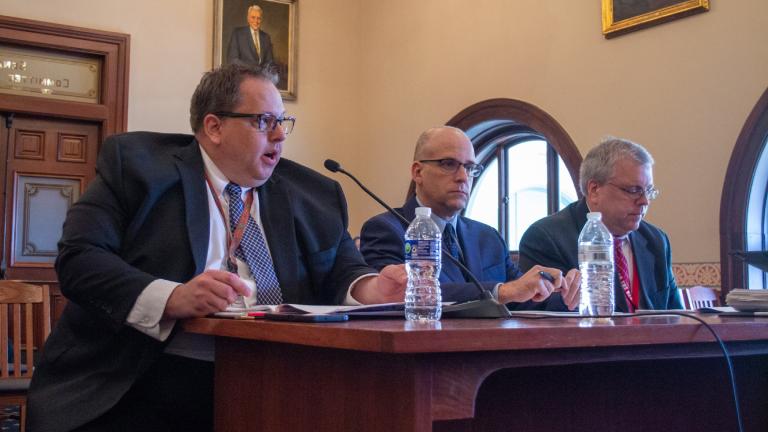One of the many devastating effects of the COVID-19 pandemic over the past several months has been a dramatic increase in food insecurity. The organization Feeding America has estimated 17 million more Americans could go hungry because of the coronavirus, and the demand on food banks and pantries has increased dramatically.
The demographics of people facing hunger have also changed. The Northern Illinois Food Bank says it’s seen a 50% increase in need, and has been providing more than 300,000 meals a day through its network of 900 sites in suburban and rural areas. Food bank CEO Julie Yurko says many people don’t think food insecurity is a problem in the suburbs, and that people often feel ashamed to ask for help.
At a recent food distribution site, Yurko met a young mother picking up food with her children, “(with) a look on her face of sadness, of desperation. ... She shared with me that she is a pastor's wife and that they have never needed help before,” Yurko said. “They believe so strongly that God always provides, and she said that morning her husband looked at her and said, ‘Maybe by going to this distribution, this is how God is providing for us.’”
Wendy Daniels, coordinator of the Breakthrough Fresh Market food pantry in East Garfield Park, says demand increased as much as threefold at its peak. Located on the West Side, Daniels said guests at the pantry used to be predominantly African American.
“Since the pandemic, our service looks more like Asian, Hispanic, Caucasian, African American. I would probably say where were about 90% African American, we’re probably about 50/50 – 50% African American and the other 50% would encompass all of those other different cultures,” Daniels said.
Breakthrough also used to serve primarily single parent homes and some senior citizens – now, it’s two-parent homes, people with corporate jobs, and people experiencing homelessness. “It just runs the gamut. It’s been very eye opening for us,” Daniels said.
Daniels and Yurko agree that there can be a stigma about getting help for food insecurity, but say it’s important to reach out rather than go hungry. “No shame, absolutely no shame,” Yurko said. “We all need a little help every once in a while.”
Resources:
Visit Northern Illinois Food Bank’s website or call their SNAP hotline: 844-600-SNAP (7627)
Visit Breakthrough’s website or the Greater Chicago Food Depository.








